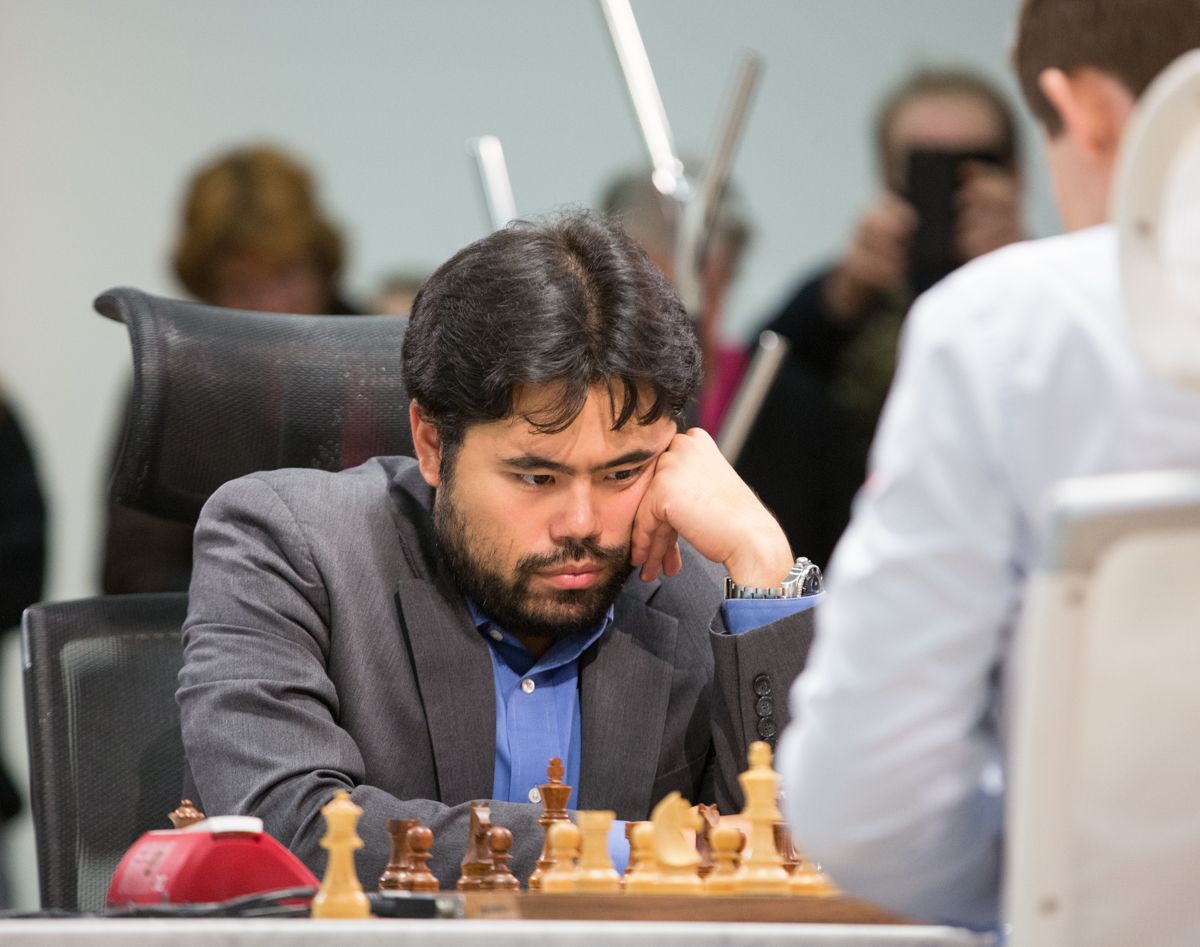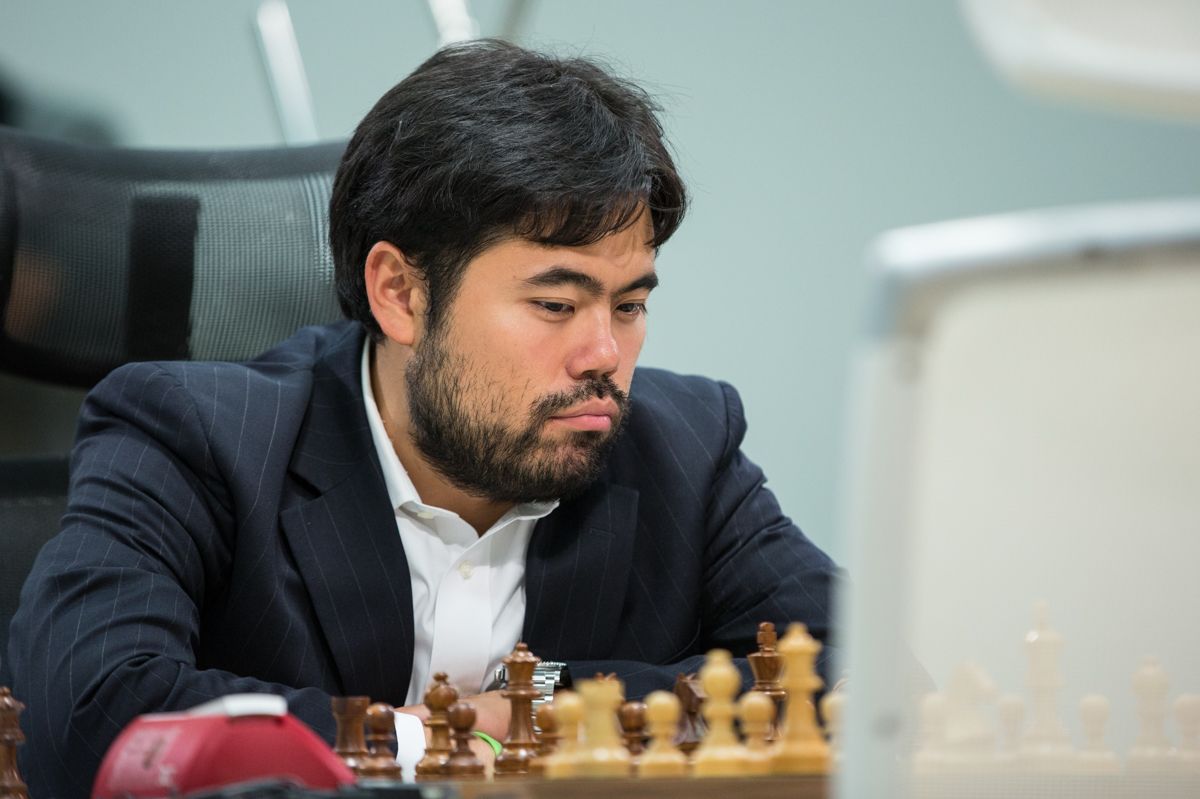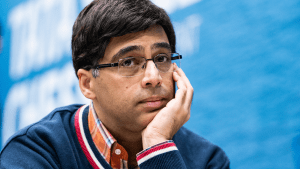
Hikaru Nakamura Interview: Cause Of A Chess Boom?
David Cox speaks to GM Hikaru Nakamura as he begins a year he hopes will land him a place in the 2020 Candidates' tournament.
Sometimes outspoken, and certainly never conventional, the American super-GM Hikaru Nakamura has always been an intriguing character, ever since he first achieved international recognition at 15 as his country’s youngest-ever GM (at the time).
Over the course of an hour-long interview, Nakamura talked about how he started off in the game, the financial challenges of making it as a chess pro, the impact of supercomputers on the global chess scene, the rise of U.S. chess and why he intends to quit the pro game for good once he hits 40.
Interview text may have been edited for clarity or length.
Chess.com: Can you tell us how you first got hooked on chess?
Hikaru Nakamura: My older brother was one of the best players in his age group across the whole country, and he started playing in national competitions, so we were always traveling to events. I was only six back then, and a complete beginner. I wandered into the skittles room, which is where people go to analyze their games, and this FIDE master from the Philippines called Oscar Tan let me play with him. The great thing is that he actually let me win! If he hadn’t done that, I maybe never would have played. As a child, you have to do reasonably well at the start to generate the interest, because children are very quick to feel that they’re wasting their time. But he let me win, and so I didn’t have any idea of how bad I was!
How far did your brother get in the game? Were you ever rivals growing up?
We didn’t have a direct rivalry because he’s about two years older than me. I overtook him when I was about 10, and at that point he’d kind of stopped improving, so I never really sensed he took it that badly. He just hit the wall, and drifted away from it. He stopped playing altogether by 15, 16, and he now works for J.P. Morgan.

You had already achieved a master title by 10. Where did that improvement come from?
I’d attribute a lot of it to my stepfather, FM Sunil Weeramantry. He had once been a very strong junior as well, but he came from a family of lawyers. When he was 20, his parents took away his chess set, all his books, and basically said, "You have to become a lawyer." So he was always encouraging me to see how far I could go.
When did your parents decide to homeschool you, and how did they come to that decision? Was it always the intention for you to go pro?
That happened when I was at the end of fourth grade. Basically, I needed to travel to keep improving. To get to IM, you need to play all these long events, a week and a half or three events, and at the time they were all in Europe. Unless I was homeschooled, it just wasn’t going to be possible. So when I was 12, I was playing 300 classical games a year. My stepfather was a full-time chess teacher, and the vast majority of his income went toward this, probably something like $35,000-$40,000 a year. But I was basically just seeing how far it would go. The notion of being a professional player never really popped into my head until much later.
By 17, you were a GM and the youngest U.S. chess champion since Bobby Fischer, but you ended up quitting the game altogether for six months. What happened?
I think I realized I wasn’t good enough. I’d hit a wall and plateaued around the top 100 in the world. One of the most brutal parts of chess is that there are so many people who are incredibly strong. There are some GMs, who I knew while growing up, and I thought they were so much more talented than me, but they never quite made it. Unless you’re in the top 20 and getting invitations to events with the bigger prize funds, there’s no guarantee of making a stable living. If you’re not, you’re playing these big opens, where first prize is no more than $10,000, and you’re not going to win them all. So I wasn’t making a great living at all, and I’d been traveling constantly for about seven years. I was just burned out.
How did you find college and what drew you back to chess?
The thing I disliked most about college was it felt like there was a class system. Growing up in the chess world, your age, background, ethnicity—none of these things mattered. It was just about how good you were. For me, the fact that being older in college, meant you were viewed as more important. I strongly disliked that. It made me realize how in many ways, chess is better than the real world. So over Thanksgiving, I decided to go and play this tournament in Philadelphia. I hadn’t looked at chess for six months, but I actually won the event. I scored 5.5/6 against GMs, and that kind of reignited the passion. It really motivated me. I wanted to start playing more again.
You went on to break into the top 10, won Wijk aan Zee in 2011, and then you spent a year working with Garry Kasparov. What are your reflections on that?
The thing which is even more clear to me now is that chess has changed a lot since Garry’s time. The strongest point in Garry’s chess is his intuition. His general feel for the game is second to none. But I’m from this generation where everyone uses computers all the time to analyze positions, and because of that, you reach conclusions that short of obvious blunders, almost every move is OK. And that made it hard to mesh the two styles because Garry has this strong feel about positions and when the computer says something very different, it’s hard to find the right balance. He’s the greatest player ever, so working with him was fantastic, but because of this, it was very hard to improve a lot. I won a couple of tournaments that year, but it felt there was something slightly missing when I was working with him.
What’s your opinion on computers? Have they been good or bad for chess?
It’s weird, because with technology, I think that much of the natural feel for the game has almost been lost. So I think the weaker GMs and IMs are a lot worse than those of 20, 25 years ago. They understand how to use a computer, but their actual intuition, in terms of the moves they find over the board, is not as good. Basically computers have meant that the top players have gotten phenomenally good, while everyone in the middle has gotten worse.
You had the best season of your career back in 2015, becoming world number-two behind Magnus Carlsen, breaking 2800 for the first time, and securing a place at the 2016 Candidates'. But since then, things haven’t quite worked out for you, and your current rating of 2749 is your lowest since 2010. How do you feel about your chess right now?
It’s interesting, if anything I feel like I’m better prepared, and a better player now than I was in 2015, but of course my rating is lower. I think Fabiano Caruana has said this about his Sinquefield Cup performance in 2014 (where he won seven consecutive games)—I don’t think there was anything particularly different I was doing back then, compared to now. I just seemed to get these great positions and do very well. And I think if you talk to any of the top players, they’ll say similar things. It’s maybe more psychological than anything, just momentum, and getting the lucky breaks.

Speaking of psychology, how important a role do you feel it plays at the Candidates' and in world championship matches?
When it comes to the Candidates', I feel that a lot of what happens once you get there is luck. When you have an event where it’s winner-take-all, it’s all about whoever gets the right breaks at the right moments. When I played, Sergey Karjakin was very stable throughout, which probably made the difference. While last year, Fabiano had this game against Vladimir Kramnik, which he probably should have lost, but he ended up winning because Kramnik made a blunder in the sixth hour of the game. And if that game goes differently then who knows what happens? Fabiano almost certainly doesn’t qualify.
About Fabiano, do you feel his performances over the past few years have played a role in driving the current U.S. chess boom? There’s so many strong young players coming from the U.S. right now.
I actually think a lot of it is directly attributable to my success in making it to the top. Because I made it within the American system. If you look at Fabiano, he played events in Europe basically from the get-go, while a lot of my career was spent competing in the U.S. I think that led to a lot of these juniors playing more, and having more of an interest in trying to be professionals.
What are your own ambitions in chess going forwards?
I’d obviously like to qualify for the Candidates' next time around. I got a little bit unlucky to not qualify in 2018, but basically that’s the big goal right now. Because other than getting to a world championship match, there isn’t a whole lot that I haven’t done. I’ve already accomplished so much, there’s very little besides that to motivate me. But I also have other interests, and while I will want to be remembered in the future as a great chess player, I hope it won’t be what defines who I am. It’s why I’d like to be competitive until I’m 40, but beyond that I’d like to do something else. So once I pass 40, there’s no way I’m going to continue on like Viktor Korchnoi or even Viswanathan Anand. What they do is phenomenal, but unless I’m winning events all the time, I don’t really see the purpose.
You’re quite unusual for an elite chess player, in that you have such a range of interests. What led to that?
I love chess, but if you’re just obsessed with that one thing, eventually you will go a little bit insane.
Watch GM Hikaru Nakamura Plays Blitz and Bullet! from GMHikaru on www.twitch.tv
For me, hiking or following the markets clears my mind. You really need that as a player, because there are going to be very bad periods where you don’t do well. If you don’t have any outlets, you kind of lose it when you have bad events, and it’s very easy to get angry and be like, "I’m going to quit tomorrow. Enough is enough." And one of the things I’ve noticed with chess players generally, like Yasser Seirawan for instance, they’re still tied to the game after their money-making days are gone. So they have to teach, commentate, do everything to still try and get an income. I’ve always been interested in investing to have some form of financial independence when I stop playing, so I can go and do something completely different.
What might we see you doing in future?
There are many different things. I have a mild interest in politics for example, and I would like to start a foundation. Those are the two main things. One of the great things with chess is you travel a lot so I’ve seen people from all sorts of different backgrounds. The more you experience, the better understanding you tend to have of different cultures, and the issues they face. I certainly want to try and give back in some way, because I’ve been very lucky in my life.






